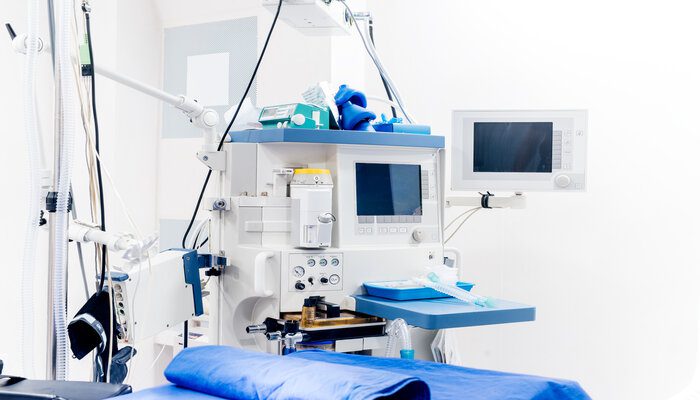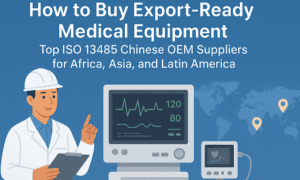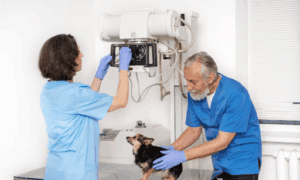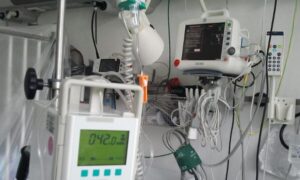Buying and using used medical equipment can be a great way to save money without sacrificing the quality of care. There are a few things, however, you should keep in mind in order to avoid some common pitfalls.
As long as you take care to buy new, gently used medical equipment is one of the best ways to cut costs while still providing quality healthcare. Depending on the type of health care system you work for, it may even be easier than buying something new.
In contrast, with expensive new medical equipment that can cost tens or hundreds of thousands of dollars down the line when they need repairs or repainting, used medical equipment is attractive because all of these things make it a good idea to look for used medical equipment. Just keep in mind that you pay a premium for the convenience. Buying used medical equipment can be a great way to save some money while still providing quality care, but you have to take some care in order to avoid some common pitfalls. You need to know where and how to buy used medical equipment effectively if you’re not likely to save as much as possible. Here are a few ways to do so.
When buying used medical equipment, you need to be sure that you know what you’re getting. It’s not worth it to buy a piece of equipment if it will soon require expensive replacements.
You also need to make sure that what you buy can be integrated into the rest of your health care system properly. If the equipment is incompatible with your computer network or requires a special power supply, for example, it’s useless even if you buy it at a good price.
Used medical equipment is almost always sold online, so make sure the company that is selling it can be trusted before purchasing anything from them. You can usually tell a lot by looking at the website.
You can also check to see if the company has sold anything on eBay or on any other online marketplace. If they do, look for reviews and complaints. If there are multiple complaints about late deliveries, for example, that’s likely what you’ll be dealing with if you buy from them as well.
Make sure that the company you’re dealing with has a good reputation. If you’re not interested in doing it yourself, hire someone you trust to do a little research on them. This can help you avoid problems with your equipment and make sure you get exactly what you need when it’s time to use it.
Five Ways to Responsibly Recycle Used Medical Equipment.
1) Used Medical Equipment Corporation: At Used Medical Equipment Corporation, they earn revenue by taking old or damaged items and reselling them at a fair price. They also reuse their materials by reselling them for other uses at their facility, as well as recycling them into new products. Their mission is to be a global leader in providing refurbished and new equipment to those who need it most.
2) National Orthotists and Prosthetists’ Association: This organization collaborates with orthotists and prosthetists to design, manufacture, supply, repair, recondition, and modify orthoses. They also recycle as much of the equipment as possible.
3) American Hospice Foundation: The American Hospice Foundation recycles medical waste by using several methods, including incineration, autoclaving (which involves placing the equipment into a pressurized vessel with steam), or using an autoshredder to break the materials down until they are unrecognizable.
4) Establishes contact with America: Contacts America is an organization that provides recycling and other services for FDA-regulated products, including lenses, contact lens cases and packaging, cleaning cases and supplies, as well as lens cases. At the end of their life, these products can be recycled by shipping them to a facility where they will be shredded into pieces small enough to be ground into a type of industrial sand that is usually used in concrete or asphalt.
5) OSHA: OSHA establishes guidelines for the separation of medical waste from all other solid waste. This includes determining if the medical waste belongs in one of the following categories: infectious waste, chemotherapy waste, pathological waste, radioactive material, anatomical specimens, or laboratory animal carcasses.
6) American Association of Tissue Banks: The American Association of Tissue Banks works with tissue banks to help them manage their waste in the most responsible way possible. In addition, they have created a set of standards for all tissue recovery organizations called the Safe Processing and Handling of Human Tissues Guidelines.
If you are interested in used medical equipment but aren’t sure where to start, we have compiled this list below of providers that may be able to help. If you are in need of medical equipment and want to find a provider, you might want to check out this list:
- Many hospitals will sell surplus or used medical equipment at a discounted price. In most cases, it is not necessary for you to have insurance in order to purchase the items. However, there may be some limitations on the type of used items you can obtain without insurance. It is best if the hospital knows your intended use for any item before providing recommendations. You may also want to be sure that the items you are purchasing are in good working order and are not leaking any hazardous materials.
There is a huge stockpile of used medical equipment in many medical facilities and hospitals across the nation. Searching for items on eBay or other online retail sites is a good place to start looking for inexpensive used medical equipment.
- Many companies will sell used medical equipment such as xray machine, CT scanners and MRI Scanners as surplus, meaning they won’t accept returns, unless they are found to be defective before they are sold.
- Hospitals and medical help facilities may have an online auction to sell off used medical equipment. These auctions are usually updated on a regular basis, depending on how much equipment is available for sale.
- Medical supply companies may buy your used medical equipment and resell it at a discounted rate. You will most likely need insurance to receive the lower rate in many cases. However, if you don’t have insurance or you want to shop for deals for someone else, you can ask about their price differences if you choose not to use insurance.



































